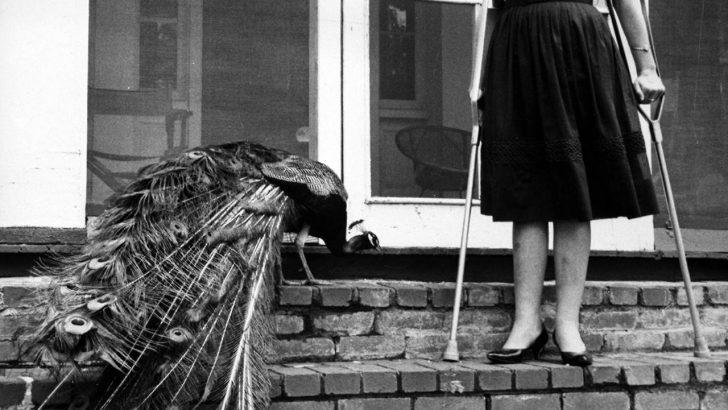The Abbess of Andalusia: Flannery O’Connor’s Spiritual Journey
by Lorraine V. Murray (St Benedict Press, Charlotte NC; kindle-edition, £7.46 through Amazon UK)
Many people are finding the restrictions caused by Covid-19 somewhat tiresome. In these circumstances it would be difficult to recommend a more appropriate read that this biography of Flannery O’Connor. The distinguished American writer coped with and turned to her advantage a lockdown few others will ever experience.
In 1950, at the age of 25, Flannery first became aware of the symptoms of lupus, an incurable disease which wreaks havoc on the body’s immune system, resulting in damage to the joints, skin and organs. Not long afterwards she needed crutches to walk.
She left Connecticut, where she had begun a writing career, and returned home to live with her widowed mother. Home was a small two-story house with a 500-acre farm, named ‘Andalusia’, near Milledgeville in Georgia. Here she spent a well-nigh monastic existence.
She began each day by attending Mass, then spent two hours at her desk and in the afternoon corresponding with a wide circle of friends.
With her novels, short stories and essays, Flannery became one of the most distinguished writers of her time. She won prestigious awards and prizes.
Her writing was impregnated by Catholic doctrine, such as that on sin and damnation and on mercy and redemption. Hence, she was named by the literati the doyen of the Catholic novel.
Her extant letters indicate that she read widely…and acted as a sage spiritual adviser to many of those with whom she corresponded”
But this appropriately entitled biography shows that she was much more than a well-known author. Her extant letters indicate that she read widely – ranging from the works of St Thomas Aquinas to the journals of St Thérèse of Lisieux – and acted as a sage spiritual adviser to many of those with whom she corresponded.
Flannery died on August 3, 1964 though not before exhibiting during the final months of her illness an edifying appreciation of the redemptive value of infirmity, pain and death itself.


 Flannery O'Connor
Flannery O'Connor 